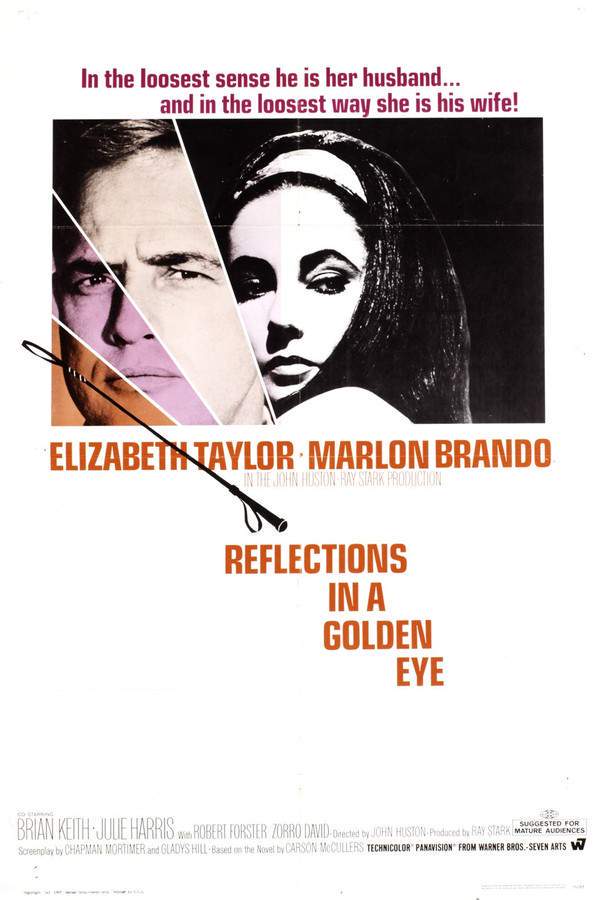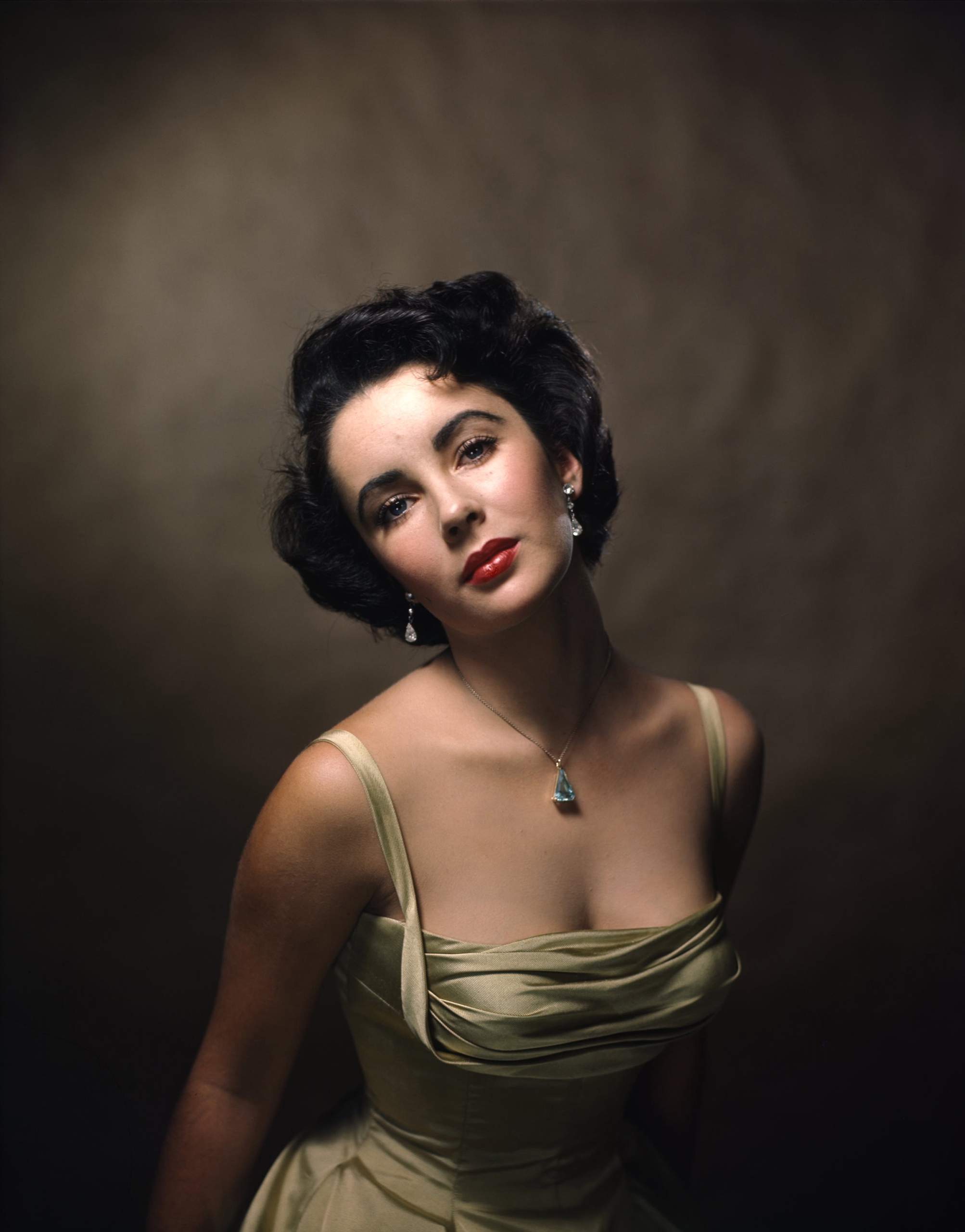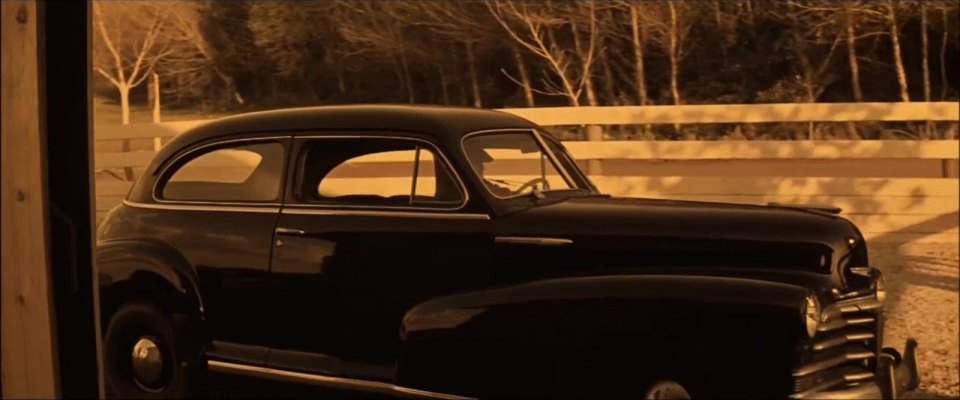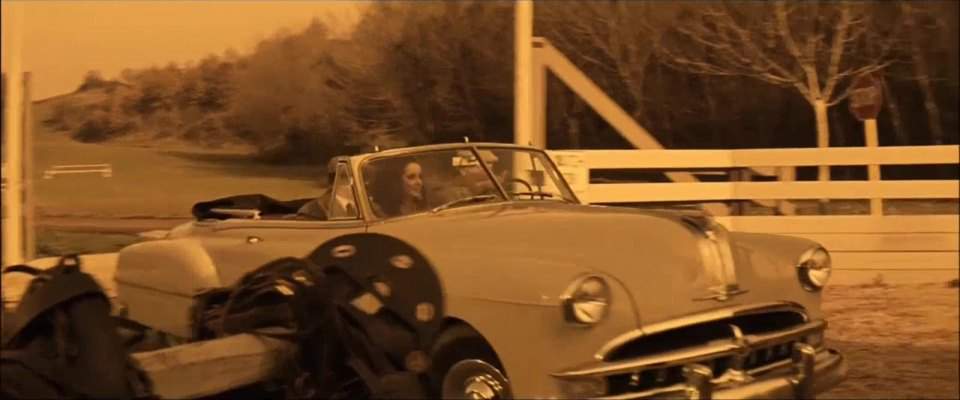Reflections in a Golden Eye 1967

During the summer of 1940s Mississippi, a troubled Army major struggles with repressed emotions and a turbulent marriage. His internal conflicts are exacerbated by the stifling heat and the secrets simmering beneath the surface of his relationships. As he grapples with his desires, the lines between obligation, longing, and betrayal become increasingly unclear, leading him toward a dramatic unraveling.
Does Reflections in a Golden Eye have end credit scenes?
No!
Reflections in a Golden Eye does not have end credit scenes. You can leave when the credits roll.
Meet the Full Cast and Actors of Reflections in a Golden Eye
Explore the complete cast of Reflections in a Golden Eye, including both lead and supporting actors. Learn who plays each character, discover their past roles and achievements, and find out what makes this ensemble cast stand out in the world of film and television.
External Links and Streaming Options
Discover where to watch Reflections in a Golden Eye online, including streaming platforms, rental options, and official sources. Compare reviews, ratings, and in-depth movie information across sites like TMDb, Wikipedia, Rotten Tomatoes or Metacritic.
Ratings and Reviews for Reflections in a Golden Eye
See how Reflections in a Golden Eye is rated across major platforms like IMDb, Metacritic, and TMDb. Compare audience scores and critic reviews to understand where Reflections in a Golden Eye stands among top-rated movies in its genre.

67
Metascore
tbd
User Score


%
TOMATOMETER

0%
User Score

65
%
User Score
Take the Ultimate Reflections in a Golden Eye Movie Quiz
Challenge your knowledge of Reflections in a Golden Eye with this fun and interactive movie quiz. Test yourself on key plot points, iconic characters, hidden details, and memorable moments to see how well you really know the film.
Reflections in a Golden Eye Quiz: Test your knowledge about the intricate relationships and dramatic events in 'Reflections in a Golden Eye'.
Who plays Major Weldon Penderton?
Marlon Brando
Jack Nicholson
Robert Redford
James Dean
Show hint
Full Plot Summary and Ending Explained for Reflections in a Golden Eye
Read the complete plot summary of Reflections in a Golden Eye, including all major events, twists, and the full ending explained in detail. Explore key characters, themes, hidden meanings, and everything you need to understand the story from beginning to end.
In this poignant drama, we delve into the intricacies of six complex characters whose lives are intricately woven together at a U.S. Army post in the Deep South during the late 1940s. Central to the narrative are Major Weldon Penderton (Marlon Brando) and his wife Leonora, whose seemingly perfect marriage is riddled with subtle strains of discontent. They are joined by the Langdons, comprised of Lieutenant Colonel Morris Langdon (Brian Keith), his melancholic wife Alison, along with Anacleto, their devoted houseboy, and Private L.G. (Ellgee) Williams (Robert Forster), who complete the core cast.
The dynamics between these characters are set in motion when Major Penderton assigns Private Williams to clear foliage surrounding his private quarters instead of attending to the horses, hinting at the evolving relational tensions. Meanwhile, Leonora is preparing for an escapade with Lieutenant Colonel Langdon, engaging in a clandestine affair while fostering a deep connection with Firebird, her prized horse. Williams’ empathetic bond with the horses in the stable foreshadows his own impending conflicts and yearnings.
As night descends, an argument between Penderton and Leonora escalates dramatically, leading to a passionate display in which Leonora provocatively taunts her husband before exposing herself outside their bedroom window. Unbeknownst to Penderton, Williams has been secretly observing, igniting a series of voyeuristic intrigues that spiral swiftly into obsession.
In a reckless display of machismo, Penderton rides Firebird, speeding past the exposed Williams. This reckless act culminates in tragedy when Penderton suffers a debilitating fall that leaves him vulnerable and helpless as Firebird drags him through the underbrush. In a fit of rage, he responds brutally to the horse, only to later crumble in tears.
Simultaneously, Williams, still naked, tenderly attends to Firebird’s wounds, showcasing his gentle nature. As Penderton retreats to his room, Leonora hosts a lavish party, only to be interrupted by the devastating news of her horse’s injury. This leads to an explosive confrontation in which she violently chastises Penderton with her riding crop, marking a pivotal moment in their relationship.
As Penderton becomes increasingly obsessed with Williams, his fascination spirals out of control, compelling him to track the young soldier’s every move around the camp. Torn by grief following the tragic loss of her newborn, Alison Langdon (Julie Harris) watches her world crumble. In this desperate period, her solace comes from the quiet companionship of Anacleto and Capt. Murray Weincheck—a compassionate officer burdened by his own administrative chains. Langdon’s marriage falters under the weight of her husband’s infidelities, resulting in her intent to pursue a divorce.
The situation worsens when she discovers her husband entangled in a compromising situation with both Leonora and Williams, leaving her shattered and desperate for escape. Seeking refuge, Alison checks herself into a sanatorium, where her mental health deteriorates further. Penderton, manipulated by lies about Alison’s supposed madness, is later struck with profound guilt when he learns of her heart attack, further amplified by Anacleto’s mysterious disappearance.
One fateful evening, Penderton gazes into the night, completely unaware of Williams’ presence lurking outside like a moth drawn to Leonora’s chamber. When Penderton switches on the light, the chilling sight of Williams kneeling beside Leonora’s bed, transfixed by her sleeping beauty, ignites a wave of uncontrollable rage and despair within him. In a heart-wrenching moment, Penderton raises his weapon and ends Williams’ life.
The film descends into chaos as the camera captures the horrific aftermath—the lifeless form of Williams, Leonora’s blood-curdling screams, and Penderton’s paralyzed figure. The haunting opening line reverberates, “There is a fort in the South where a murder was committed,” echoing ominously, compelling the audience to reflect on the tragic spiral ignited by these intertwined lives.
Uncover the Details: Timeline, Characters, Themes, and Beyond!

Coming soon on iOS and Android
The Plot Explained Mobile App
From blockbusters to hidden gems — dive into movie stories anytime, anywhere. Save your favorites, discover plots faster, and never miss a twist again.
Sign up to be the first to know when we launch. Your email stays private — always.
Watch Trailers, Clips & Behind-the-Scenes for Reflections in a Golden Eye
Watch official trailers, exclusive clips, cast interviews, and behind-the-scenes footage from Reflections in a Golden Eye. Dive deeper into the making of the film, its standout moments, and key production insights.
Cars Featured in Reflections in a Golden Eye
Explore all cars featured in Reflections in a Golden Eye, including their makes, models, scenes they appear in, and their significance to the plot. A must-read for car enthusiasts and movie buffs alike.
Reflections in a Golden Eye Other Names and Titles
Explore the various alternative titles, translations, and other names used for Reflections in a Golden Eye across different regions and languages. Understand how the film is marketed and recognized worldwide.
Quick Links: Summary, Cast, Ratings, More

What's After the Movie?
Not sure whether to stay after the credits? Find out!
Explore Our Movie Platform
New Movie Releases (2025)
Famous Movie Actors
Top Film Production Studios
Movie Plot Summaries & Endings
Major Movie Awards & Winners
Best Concert Films & Music Documentaries
Movie Collections and Curated Lists
© 2025 What's After the Movie. All rights reserved.























